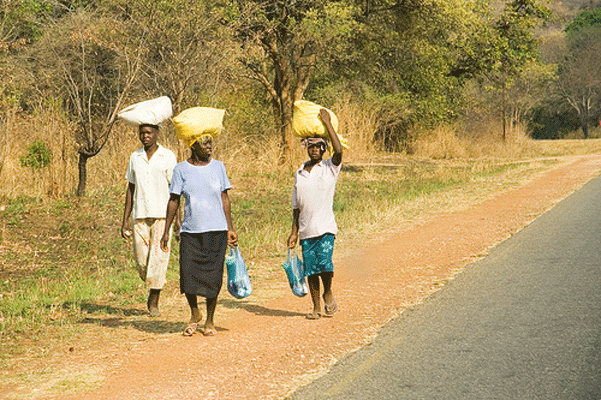
Binga in Matabeleland North province is one district that is riddled with traditional practices and norms that perpetuate the discrimination and infringement of women’s fundamental civil liberties. This increases women’s vulnerability to HIV infection and accelerates the epidemic.
social commentary with Moses Mugugunyeki

An unequal dominant patriarchal value system is the order of the day in Binga that has seen women being placed in the “kitchen” while men do all the “macho” jobs. On top of that, men are socialised to believe that women are inferior and should be under their control while women are made to act submissively towards men. Such a scenario leaves women weak when it comes to negotiating sexual encounters.
Although gender sensitisation workshops with traditional authority structures have been done in the area with the aim of transforming rural communities to be more sensitive to women’s social rights and gender equality, Binga women continue to suffer at the hands of harmful traditional and cultural practices.
During a recent visit to Binga, The Standard Style established that most women in the area lacked economic power and feel they cannot risk losing their partners for denying them sex.
“The woman’s responsibility is childbearing and satisfying her husband sexually. Refusing a husband sex is taboo and one can be punished for that,” said a villager in Manjolo Ward who spoke on condition of anonymity.
The villager, while acknowledging that certain cultural norms and practices related to sexuality contributed to the risk of HIV infection, said it was high time that society did away with certain traditions and practices considered detrimental to the physical or mental integrity of girls and women.
“As Tonga people, we observe and jealously guard our culture and traditions but when some of the practices lead to HIV, it would be proper to do away with them,” he said.
- Chamisa under fire over US$120K donation
- Mavhunga puts DeMbare into Chibuku quarterfinals
- Pension funds bet on Cabora Bassa oilfields
- Councils defy govt fire tender directive
Keep Reading
Sivukile Nyoni (not her real name), a divorced mother of two, said the low status accorded to an unmarried woman was the other reason why most women were not leaving their abusive relationships.
“You become an outcast if you leave your husband; society looks down upon you and this is the reason why most women remain in abusive relationships. You are not allowed to talk about sex; it is your husband who makes decisions when it comes to sex issues,” she said.
Nyoni added that since Binga was a polygamous society, there was a widespread belief that men were biologically programmed to have sex with more than one woman.
“Most men here tend to have more sexual partners and in some instances they use the services of sex workers,” she said.
Last year the National Aids Council (NAC) raised a red flag after Binga recorded a 100% increase in HIV prevalence. NAC said increased interaction with outsiders could have caused the high prevalence rate. Binga used to have the lowest prevalence rate of 3,5% but it increased to 7% early last year and the Aids organisation fears that the district might be competing with others on the negative side.
Hwange, which is Binga’s closest urban centre, has a prevalence rate of 14% and there are fears that migration to the town could have exposed people to a variety of cultural influences. As such, certain traditional values that could serve to protect people from HIV infection are being eroded by cultural modernisation.
“Most men go and work in Hwange, leaving their wives here. Hwange is known for sex work and when these men come back home they insist on having unprotected sex with their wives. Because their wives are tied with cultural practices, they have no choice but to dance according to the tune,” Nyoni said.
Nyoni, who divorced her husband of seven years and now works at a retail outlet at Binga Centre, said it was time certain cultural norms and practices related to sexuality were scrapped off.
“It’s funny that when a woman has knowledge about sex, it is perceived as a sign of immorality, thus insisting on condom use may make a woman appear distastefully well-informed. I think society needs to be informed on such issues, otherwise people will die,” she said.
To curb the spread of HIV in Binga, government and non-governmental organisations (NGOs) are working together to address factors that place the area at risk.
NGOs have called for a societal review of traditions that may be contributing to the spread of HIV in Binga.











